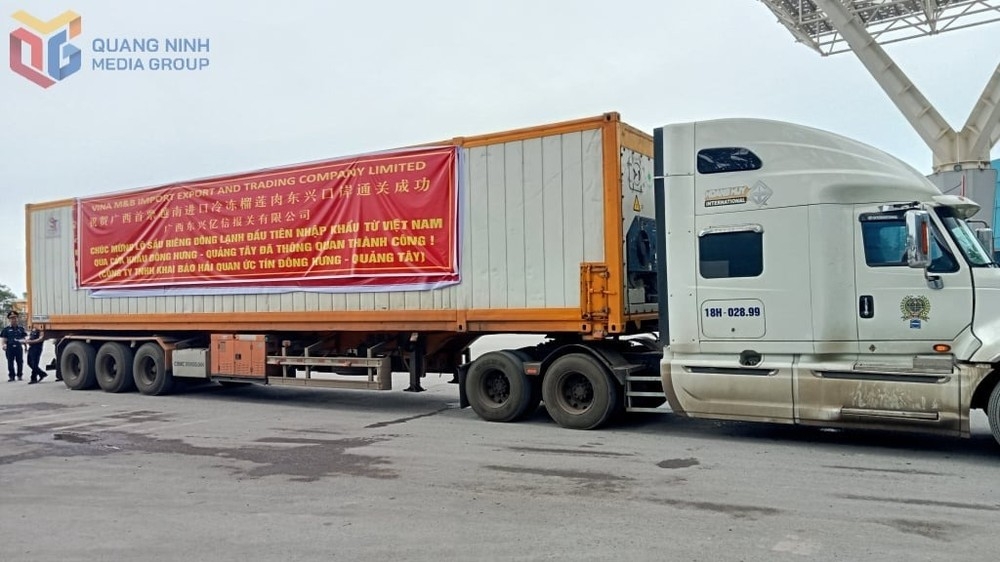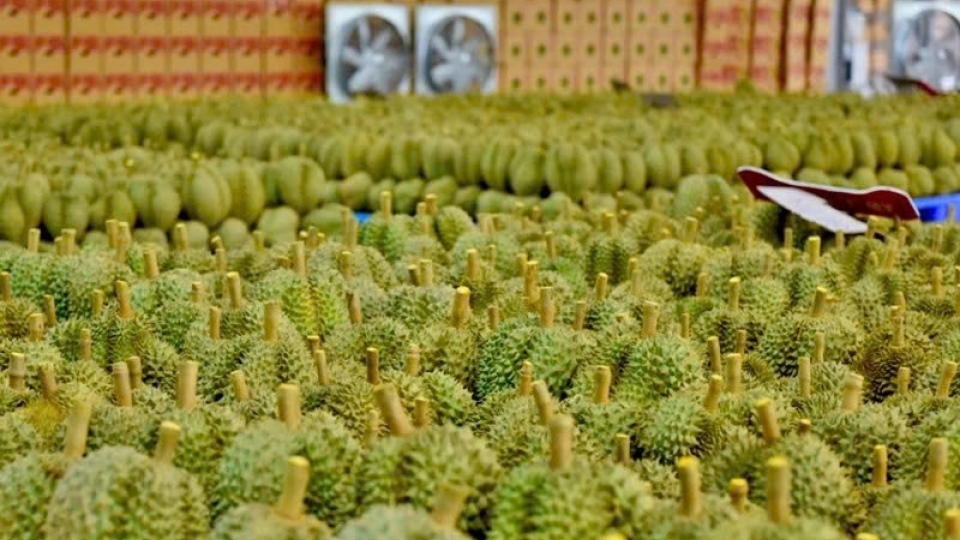Vietnam exports first batch of frozen durian to China
VOV.VN - A shipment of 22 tonnes of frozen durian produced by Vina M & B Export and Trading Co., Ltd. in Hanoi was officially cleared through the Bac Luan II border gate, part of the Mong Cai (Vietnam) – Dongxing (China) international border gate pair, on May 30.

The Chinese importer for this shipment is Shanghai Xinronghe International Trade Co., Ltd., headquartered in Shanghai.
This shipment was prepared following strict protocols, from traceability of raw materials to processing, freezing, packaging, and final product inspection. Every stage adhered to the technical requirements outlined in the bilateral protocol signed between Vietnam and China in August 2024.
The successful export of this frozen durian batch marks a significant breakthrough, especially as the fresh durian export market faces challenges such as quality control and transport time constraints.
Frozen durian offers longer shelf life and consistent quality during long-distance transport, thus enabling deeper penetration into inland China, where demand for this Vietnamese specialty fruit remains strong.
Notably, this export milestone comes just two days after a direct meeting on May 28 between Vietnam’s Minister of Agriculture and Environment Do Duc Duy, and Director-General of the General Administration of Customs of China (GACC) Sun Meiqun.
The two officials agreed to establish a "green lane" mechanism - a prioritised customs clearance channel at border gates for Vietnamese fresh fruits during peak harvest seasons, especially lychee and durian.
The move is seen as a timely and effective solution to minimise agricultural product congestion during harvest seasons, and help farmers and businesses feel more secure in production and exports.
China also committed to extending working hours at border checkpoints, including weekends and after official hours, to meet increased customs demands during harvest peaks.
Both sides agreed to establish an early warning and information-sharing mechanism for shipments that violate regulations, allowing Vietnam to promptly respond and adjust production processes.
They also consented to deploy permanent technical liaison personnel at border checkpoints to quickly handle arising issues, ensuring smooth and efficient export activities.
China is currently the largest durian consumer market in the world. In its so-called “durian diplomacy” strategy, Beijing has pledged to expand durian imports from Southeast Asian countries, with Vietnam emerging as one of the most promising partners.




